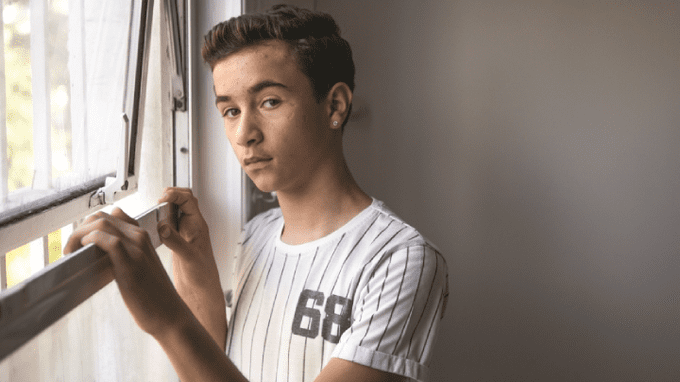The coronavirus pandemic could leave a legacy of anxiety and poor mental health among the country’s children and young people, Barnardo’s has warned.
Polling by the UK’s leading children’s charity shows the mental health and wellbeing of children and young people could still be worsening a year after the pandemic first struck.
In an online poll conducted by YouGov, Barnardo’s asked more than 4,000 children and young people aged eight to 24 across Great Britain about how they were feeling now compared to before the pandemic.
This is the second year Barnardo’s has surveyed children and young people as part of its Big Conversation which began during the first wave of Covid to gauge how children were coping during lockdown.
In Wales, 63% of 16 to 24-year-olds surveyed said they were feeling more stressed than before the pandemic, 54% were more worried and sadder than before, and 59% were lonelier.
The issues this age group is currently most concerned about because of the pandemic is mental health, both their own and that of their families, and the economy.
Although 54% of 16-24-year-olds who are enrolled at school, college or university were happy to be back in face-to-face education more than a third (36%) said more time should be spent helping students to cope with anxiety and 21% said there should be less focus on academic achievement.
Worryingly, the number of 16-24-year-olds reporting struggling with their mental health and wellbeing has increased from last year suggesting mental health and wellbeing has worsened despite the recent positive news about the vaccine rollout and the lifting of restrictions.
Stress was what young people across the country reported increasing the most since before the pandemic, with 58% reporting a rise, compared to 43% last year.
Loneliness was next at 56% (up from 48% last year), followed by worry at 54% (up from 48% last year) and sadness at 52% (up from 46% from last year).
Feeling lonely or isolated was also one of the hardest things 16-24-year-olds found about the Covid-19 restrictions, with a third (33%) choosing it as one of their top three options. Not seeing friends (45%) and spending too much time online or in front of a screen (26%) also made the top three.
Younger children fared better than their older peers, but almost a third of eight-15-year-olds surveyed said they were experiencing feeling stressed (29%) and worried (30%) more now than before the coronavirus pandemic. Only 16% of GB children aged eight to 15 reported they were experiencing these respective feelings less now than before the coronavirus pandemic.
The two issues this younger group was most worried about because of coronavirus were being behind in their studies and catching or spreading the virus – with 26% of children surveyed choosing these options.
Sarah Crawley, Director of Barnardo’s Cymru, said:
“Barnardo’s has consistently warned that the negative effects of the pandemic could last a lifetime if children and young people don’t have the right support. Our survey adds further weight to the argument that children must be front and centre of the Government’s plans for the post-Covid period.
“The pandemic and repeated lockdowns have been hugely traumatic for children, with months away from school, separation from friends and relatives, anxiety about the virus and financial pressures at home taking a serious toll on their mental health. Added to that are concerns about their current and future job prospects.
“Given children’s exposure to unprecedented levels of trauma, loss and adversity during the pandemic, schools should all be providing support with mental health and wellbeing and ’summer classes’ must not just be about academic catch-up, but also about giving children space to play, re-connect with friends and build their resilience.
“We need a radically different approach to improving outcomes for the ‘lockdown generation’ – including longer term thinking and funding, with a strong focus on stepping in early to support children and young people before they reach crisis point.”
Help keep news FREE for our readers
Supporting your local community newspaper/online news outlet is crucial now more than ever. If you believe in independent journalism, then consider making a valuable contribution by making a one-time or monthly donation. We operate in rural areas where providing unbiased news can be challenging. Read More About Supporting The West Wales Chronicle


























